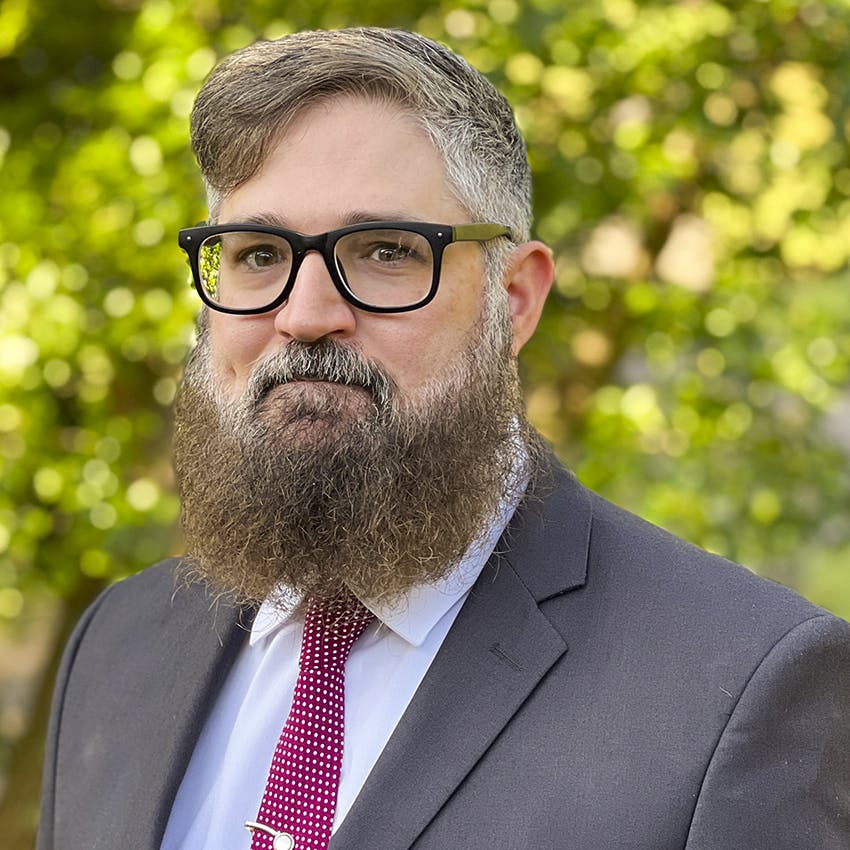Robotics is ‘Transforming’ Maritime Power, Navy Secretary Says
Carlos Del Toro calls for investment in digitization, robotics and tech that have transformed shipyards, ship production and operations.

Technology like unmanned systems, robotics and artificial intelligence strengthens U.S. maritime power, outgoing Secretary of the Navy Carlos Del Toro said at the U.S. Naval Institute’s Defense Forum Washington 2024.
“Unmanned technology is the way of the future. It’s both manned and unmanned fleet,” Del Toro said Wednesday. “Working together is extremely important.”
Del Toro’s remarks centered on shipbuilding Wednesday. He said that digitization and AI have drastically changed the way shipyards do business with the Navy and the analytics of ship production.
“Robotics is transforming our own shipyards here in this country. The introduction of AI and mass production of steel and other things as well too [have changed the business],” said Del Toro. “The digitization of the shipyard and its operations itself is something that we need to continue to invest in, so when a pump shows up late on a Tuesday afternoon, on a Wednesday morning, you could understand what the impact of that pump showing up late is to the delivery of the ship.”
Del Toro’s comments build on Chief of Naval Operations Adm. Lisa Franchetti’s plan to improve the Navy’s readiness against China by 2027. A key part of this plan is the increased use of autonomous systems and robotics.
“There are things you can do in robotic and autonomous systems to be able to expand on the lethality and the depth of our conventional platforms,” said Franchetti at a Defense Writers Group meeting in October.
The Navy launched Task Force 59.1 in January, focusing on the operational deployment of unmanned systems teamed with manned operators. In May, U.S. Naval Forces Europe-Africa and the Navy’s Sixth Fleet announced the integration of the first all-domain task force into theater-wide fleet operations in Task Force 66. Del Toro cited the task forces as examples of unmanned systems bolstering maritime security worldwide.
“When you take a look at what Task Force 59 has done over the last couple of years, what we’re doing now with Task Force 59.1, what we’re doing with Task Force 66 in the Mediterranean and what we’ve done out in the Pacific with medium unmanned surface vehicles,” said Del Toro. “That’s where I think the bulk of the investment needs to be made over the next several years.”
Medium and large unmanned systems are also on the horizon, Del Toro added. He called for expanded investment in unmanned surface systems for worldwide maritime operations and interdiction of illegal drugs and arms.
“We need to fully explore how we would develop the concept of operations for large, unmanned surface vessels. But I think investments in medium unmanned surface vessel makes all the sense in the world,” said Del Toro. “Over a year ago, I directed the CNO to actually start conducting unmanned operations with, excuse me, with cell drones in the Caribbean…where a bulk of the cocaine flows into the into the southern coast of the United States, and a lot of the illegal arms actually flows in both directions.”
Del Toro added that corporate partners need to invest in shipbuilding, technology and innovation for national security purposes. He called for growth private funding for the Navy’s future technology and projects.
“I wish a lot more investments in [capital expenditures] would be made with corporate money and not taxpayer money,” said Del Toro. “It needs to continue to grow both taxpayer funded capex and corporate funded capex as well, too, into the future, so that we can buy technology like that. That makes a difference.”
During his remarks, Del Toro cited widespread embrace of his technology and strategic plans, noting that economic success and military success are tied together.
“I introduced my vision for a new maritime statecraft to prevail in an era of intense strategic competition, and I must say that a year later, I am most pleased by how it has been embraced by so many across the interagency and in Congress in such a bipartisan manner,” said Del Toro. “Maritime statecraft encompasses not only naval diplomacy and maritime competition, but a national whole-of-government effort to build rebuild comprehensive U.S. and allied maritime power, both commercial and naval.”
“We cannot rely merely on maintaining our sea power. Of course, it must strengthen our maritime dominance by expanding our shipbuilding capacity and enhancing our fleets capabilities,” Del Toro added.
This is a carousel with manually rotating slides. Use Next and Previous buttons to navigate or jump to a slide with the slide dots
-

NIST Launches ARIA to Redefine How AI Is Evaluated
NIST's ARIA aims to measure real‑world AI behavior, moving beyond accuracy scores to capture risks revealed through model testing, red‑teaming and field trials.
3m read -

Flipping the Script on AI Adoption at Space Force
The newest military service is moving away from off-the-shelf solutions to build a culture of internal innovation and mission-specific tools.
10m watch -

OPM Extends Tech Force Deadline as Program Tests New Federal Hiring Model
High demand prompted OPM to extend Tech Force applications to Feb. 2 as the agency pilots centralized, skills-based hiring.
5m read -

FDA Outlines AI Principles for Drug Development
New FDA guidance outlines 10 principles for using AI in drug research, development and manufacturing, developed with European regulators.
3m read








